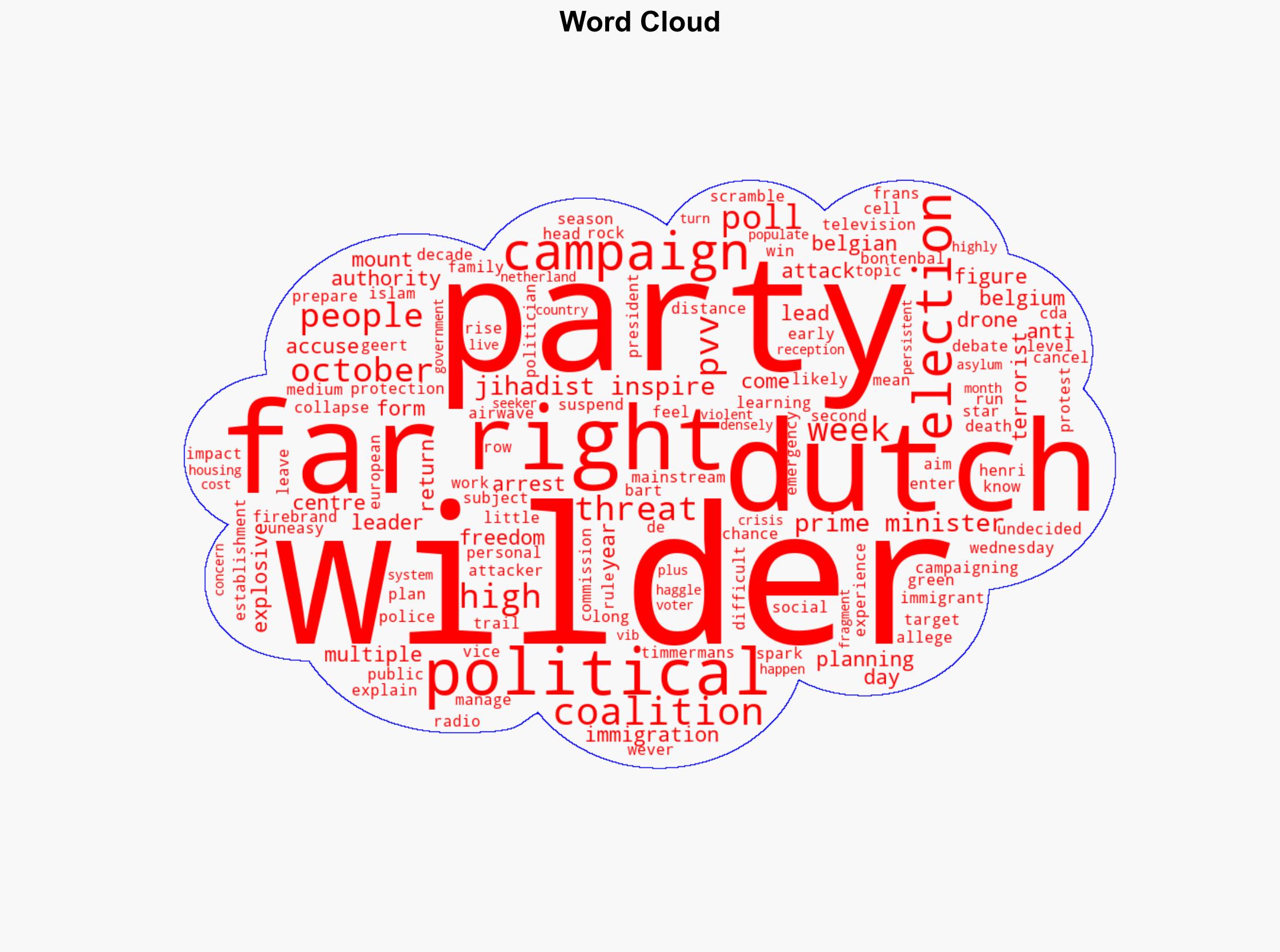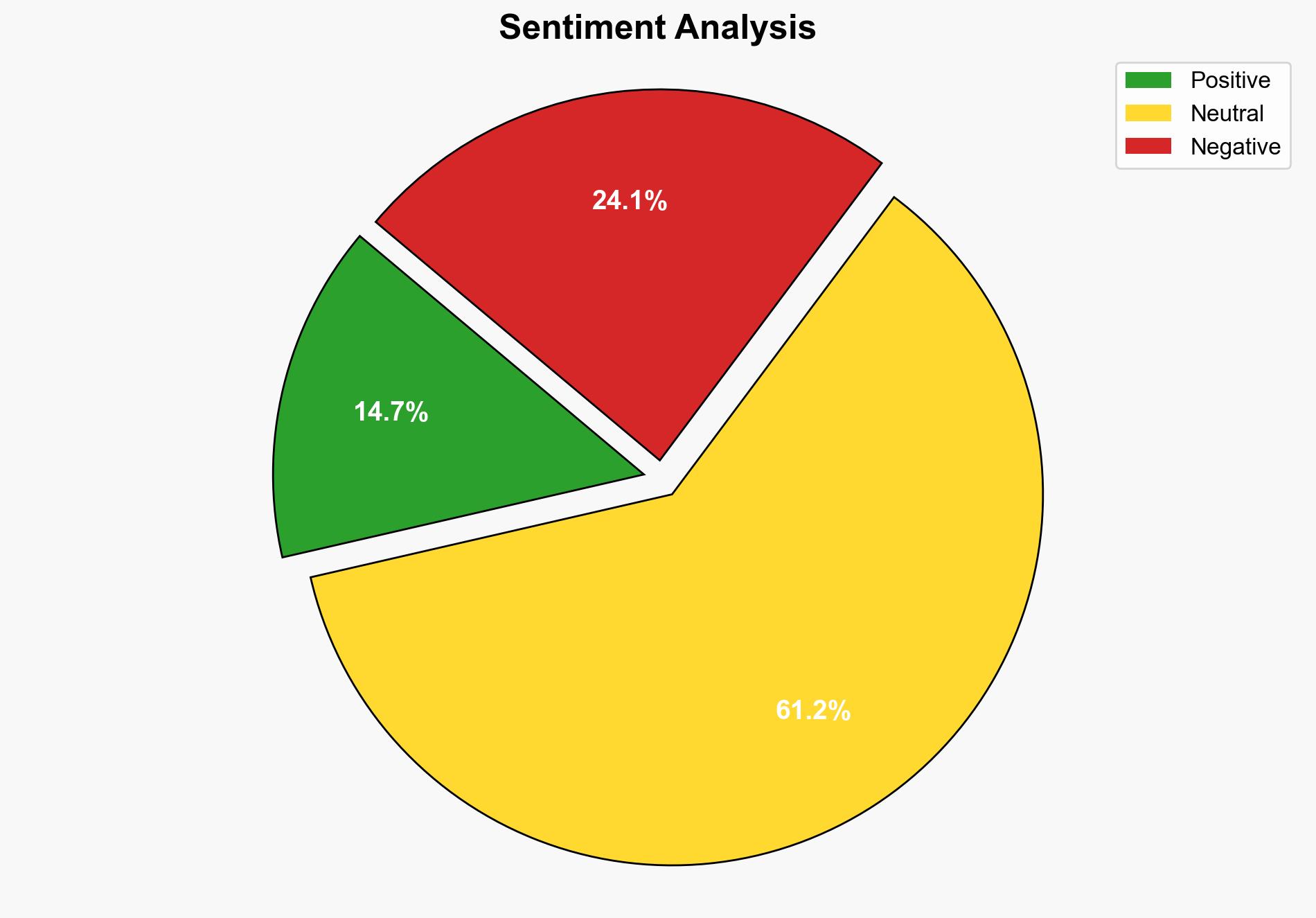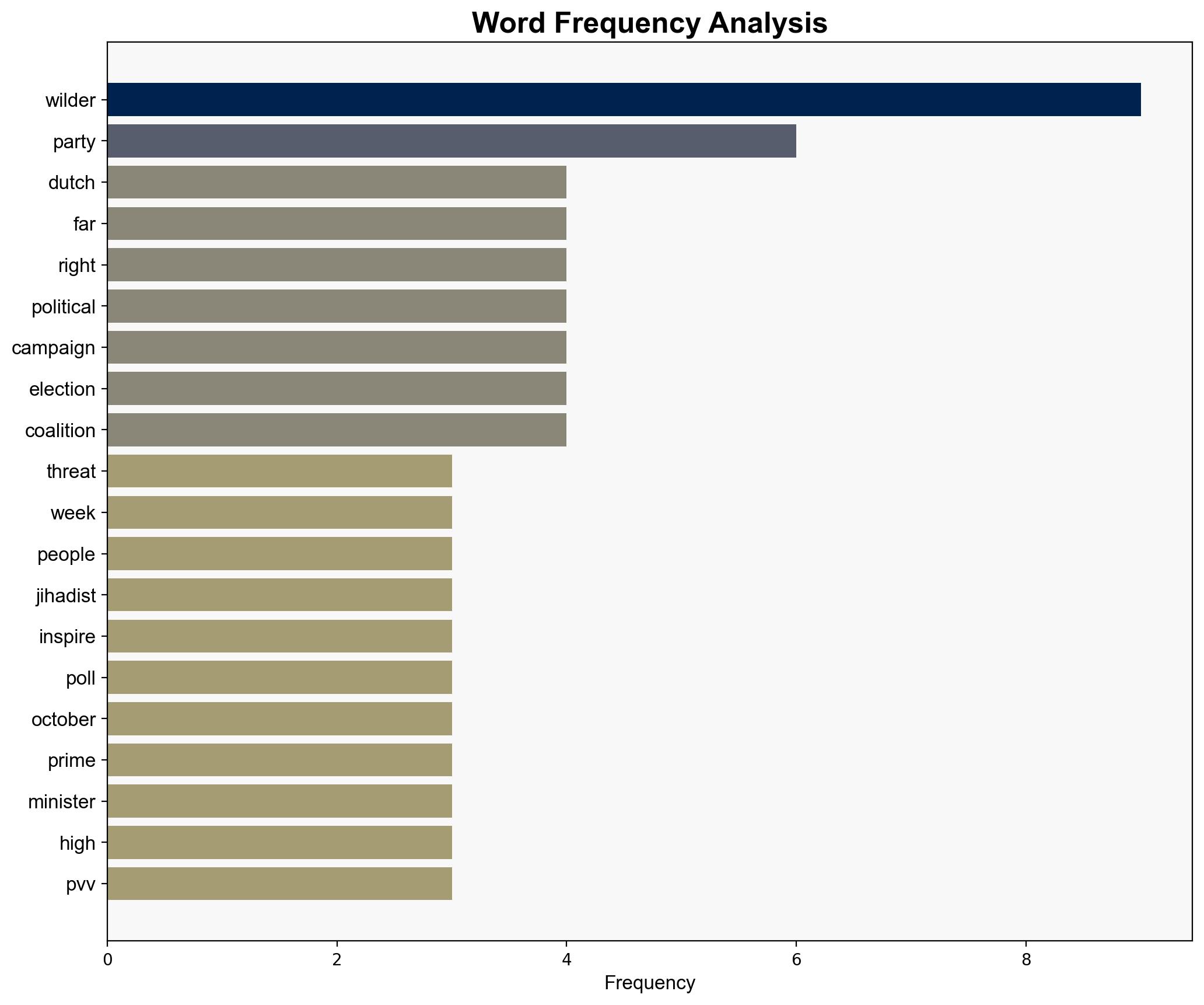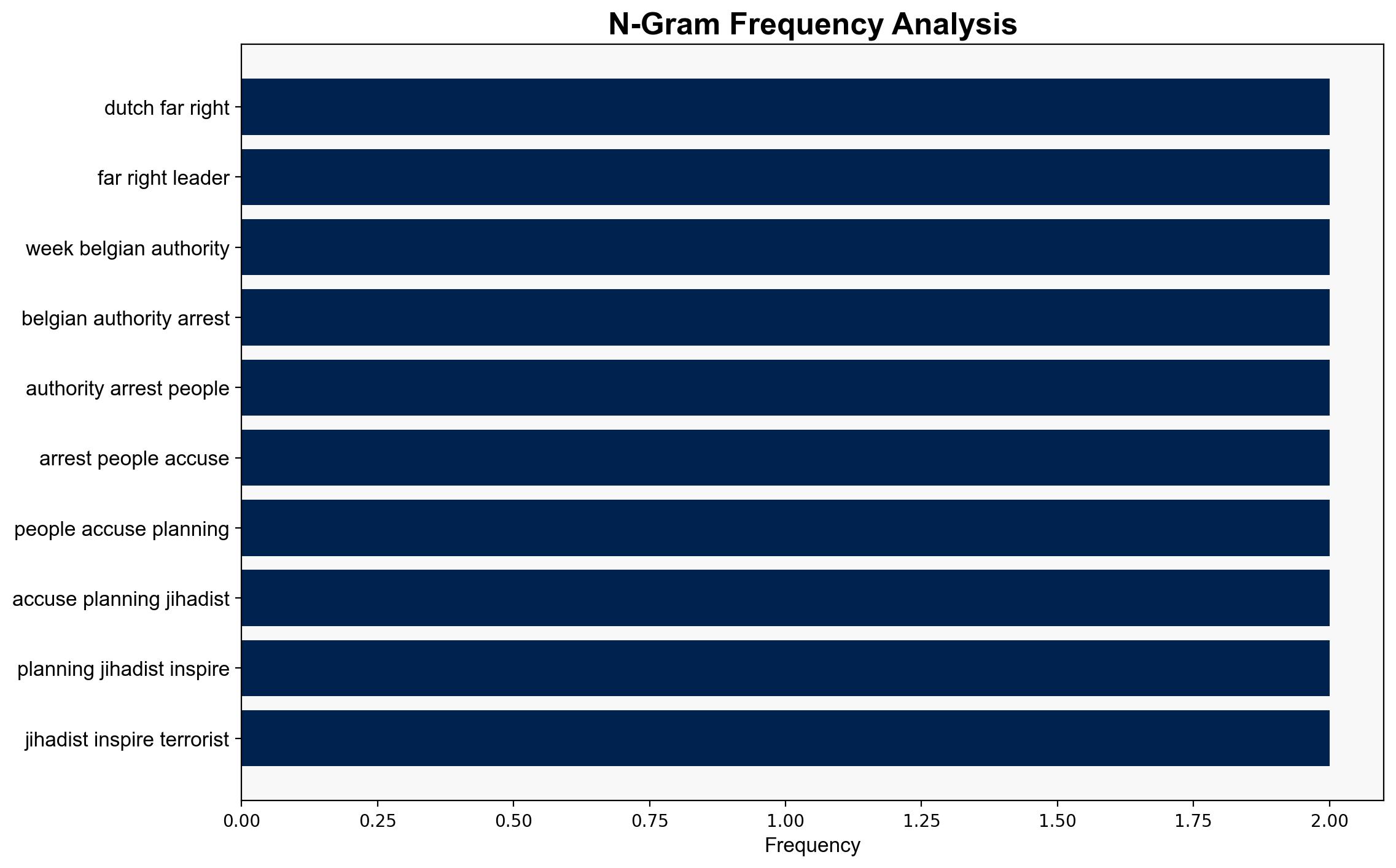Dutch far-right leader Wilders says back campaigning after threats – EURACTIV
Published on: 2025-10-15
Intelligence Report: Dutch far-right leader Wilders says back campaigning after threats – EURACTIV
1. BLUF (Bottom Line Up Front)
The most supported hypothesis is that Geert Wilders’ return to campaigning is a strategic move to capitalize on heightened public attention and sympathy following the threats against him. This hypothesis is supported by the timing of his return and the political context in the Netherlands. Confidence level: Moderate. Recommended action: Monitor Wilders’ campaign for shifts in public sentiment and potential security threats, and assess implications for Dutch political stability.
2. Competing Hypotheses
1. **Hypothesis A**: Wilders’ return to campaigning is primarily a response to perceived security improvements and a calculated risk to maintain political momentum.
– **Supporting Evidence**: Arrests in Belgium may have neutralized immediate threats, allowing Wilders to resume activities.
– **Contradictory Evidence**: Continued high-profile threats suggest persistent risks.
2. **Hypothesis B**: Wilders is leveraging the threats to enhance his political narrative and galvanize support by portraying himself as a victim of extremism.
– **Supporting Evidence**: Wilders has historically used threats to bolster his anti-immigration and anti-Islam rhetoric.
– **Contradictory Evidence**: This strategy could backfire if perceived as exploiting security issues for political gain.
3. Key Assumptions and Red Flags
– **Assumptions**: The assumption that Belgian arrests have significantly mitigated the threat level may be overly optimistic. Wilders’ security detail’s effectiveness is assumed but not verified.
– **Red Flags**: Lack of detailed information on the capabilities and intentions of the arrested individuals. Potential bias in media portrayal of Wilders’ actions.
– **Blind Spots**: The broader impact of Wilders’ rhetoric on community tensions and potential retaliatory actions is not fully explored.
4. Implications and Strategic Risks
– **Political Impact**: Wilders’ actions could polarize the electorate further, influencing coalition dynamics post-election.
– **Security Risks**: Persistent threats may necessitate increased security measures, impacting public perception of safety.
– **Geopolitical Risks**: The situation may strain Dutch-Belgian relations if cross-border security cooperation is perceived as inadequate.
– **Psychological Impact**: Public fear and anxiety could rise, affecting voter turnout and engagement.
5. Recommendations and Outlook
- Enhance intelligence-sharing between Dutch and Belgian authorities to preempt potential threats.
- Develop a public communication strategy to address security concerns without exacerbating fear.
- Scenario Projections:
- Best Case: Wilders’ campaign proceeds without incident, leading to a stable post-election coalition.
- Worst Case: Escalation of threats results in a significant security incident, destabilizing the political landscape.
- Most Likely: Continued tension with sporadic security incidents, necessitating ongoing vigilance.
6. Key Individuals and Entities
– Geert Wilders
– Bart De Wever
– Frans Timmermans
– Henri Bontenbal
7. Thematic Tags
national security threats, cybersecurity, counter-terrorism, regional focus





